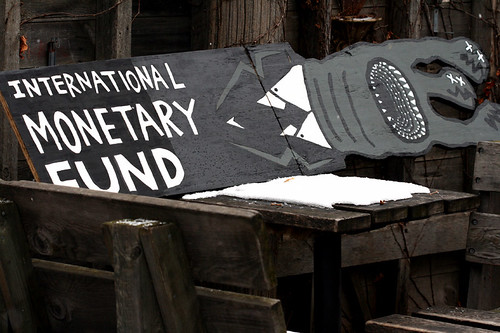The IMF today predicted a grim economic outlook for 2009, with some green shoots in 2010.
The news is especially grim for the UK and Eurozone countries, with a 2.8% and 2% fall in output in 2009 and barely any growth in 2010. The US is predicted to do quite a lot better – a 1.6% fall this year, but 1.6% of growth next. That should cue a pleasant new wave of American triumphalism.
China floats through the crisis more or less unscathed. Growth slips to 6.7% in 2009, but bounces back to 8% in 2010. India does a little worse, Brazil suffers pretty badly, while the Mexican economy really tanks.
But I really don’t know why I even bothered to read the stats. Nine months ago at the Progressive Governance Summit, Dominique Strauss-Kahn told everyone that Europe and the US would experience a slowdown, but not a loss of growth (with the European economy expected to outperform the American one).
Even since it last ran its models in November (just three months ago!), the IMF has knocked 1.7 percentage points off world growth, and a staggering 6 points from its prediction for what were once known as the Asian tigers.
The IMF itself is forced to admit that “the uncertainty surrounding the outlook is unusually large.” Doesn’t that translate as “our models weren’t built for these crazy conditions, but we’ll run them anyway and PR them heavily to the 1000 or so media outlets that’ll reprint our speculation as fact”?
Or am I missing something here?





